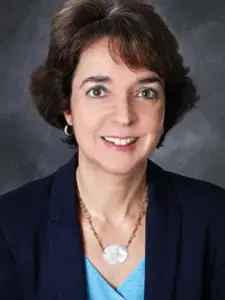
Biography
I was born in the mostly rural Northwest region of Spain, Galicia, and grew up in a small tightknit community. All the members of my family lived, and still do, within a 20-mile radius. Due to the difficult economic times, however, my parents emigrated to the United Kingdom when I was eight years old. I joined them a year after and had to quickly learn a new language and adapt to the urban and cosmopolitan city of London (talk about culture shock!). This uprooting shaped the rest of my life. I became bilingual and bicultural at a very early age. I chose to major in English at the University of Santiago de Compostela a few years after we returned to Spain; I came to the United States as a teaching assistant after graduation; and I decided to enroll in a PhD program in Hispanic Literature at the University of Connecticut shortly after. The rest, as they say, is history.
Even though I am a first generation student, teaching is somehow in my blood. My favorite game throughout my entire childhood was playing school. My passion for teaching and for research has informed all of my adult life. I deeply believe that knowledge creates awareness, and that awareness in turn creates understanding, empathy, and progress, not only within our communities but in the world at large. The study of languages and literatures gives students the opportunity to see reality through the eyes of others and provides them with essential tools for global and intercultural understanding. The most rewarding aspect of my job as an educator has been to experience and facilitate the rich intellectual and human interaction that takes place in the classroom. At Holy Cross, nothing is more important to me than creating spaces where students can learn about Spanish culture and literature as they explore and engage in some of the fundamental issues of our time such as gender, race, class, war, conflict, and the environment.
Research
- 19th-21st Century Spanish Literature
- Women’s Writing, Narrative
- Film Studies
- Cultural Studies
- Gender Studies, Feminism, Ecofeminism
Books
Global Issues in Contemporary Hispanic Women’s Writing: Shaping Gender, the Environment, and Politics. Routledge, 2013 (Co-editor).
Palabra de mujer: hacia la reivindicación y contextualización del discurso feminista español. Madrid: Editorial Fundamentos, 2007 (Author). (A Woman’s Word: Towards the Vindication and Contextualization of Spanish Feminist Discourse)
Selected Recent Articles
“Arriesgándolo todo en cada palabra. Entrevista a Yolanda Castaño,” Hispania, Volume 107 , Number 1 (March 2024): 13-24.
“La escritura como instrumento de resistencia cultural y reivindicación de la diferencia: Entrevista a Emma Pedreira.” Hispanic Journal 41.2 (Fall 2020): 31-47.
“Entrevistas a María Reimóndez, Rosa Montero y Julia Otxoa: el arte de la escritura y el activismo” (Interviews with MR, RM, and JO: The Art of Writing and Activism). Romance Studies 34:1 (2016: 43-63).
“El cine social y comprometido de Icíar Bollaín: Hacia una perspectiva global, transcultural y ecologista” (Icíar Bollaín’s Socially Engaged Cinema: Towards a Global, Transcultural, and Ecological Perspective). España contemporánea XXIV(2)-XXV(1,2), (2015: 161-173).
“Escribir desde una geografía de desarraigo y extrañamiento: la poesía y el microrrelato de Julia Oxoa” (Writing From a Space of Unfamiliarity and Non-Belonging: Julia Otxoa’s Poetry and Microstories). Anales de la Literatura Española Contemporánea [ALEC] 40.1 (2015: 61-73).
“Hacia una perspectiva global y transnacional: el compromiso y la urgencia en el cine español contemporáneo” (Towards a Global and Transnational Perspective: Engagement and Urgency in Contemporary Spanish Theater). Published in the volume Cuestión social: Literatura, cine y prensa (Santiago de Compostela: Editorial Andavira, 233-241, 2014).
“El espacio femenino en Valle-Inclán.” In Valle-Inclán: ensayos críticos sobre su obra y trascendencia. Coruña: Hércules de Ediciones, 2009.
“Entre el dinamismo ideológico y el estatismo filosófico: la aproximación al género y a la mujer en la obra de Valle-Inclán,” ALEC 33.3 (2008), 33-56.
“Catolicismo y feminismo: el enfrentamiento de dos ideologías en Insolación de Emilia Pardo Bazán y Camino sin retorno de Lidia Falcón.” La literatura, la iglesia y el reino de este mundo. A Coruña: Monográficos de Artabria, 2006. 51-59.
“De ángel del hogar a mujer moderna: las tensiones filosóficas y textuales en el sujeto femenino de Carmen de Burgos.” Letras Femeninas 31 (2005): 49-74.
“Entre la crisis generacional y el éxtasis sexual: el dilema femenino en Atlas de geografía humana de Almudena Grandes.” Romance Studies 20 (2002): 129-144.